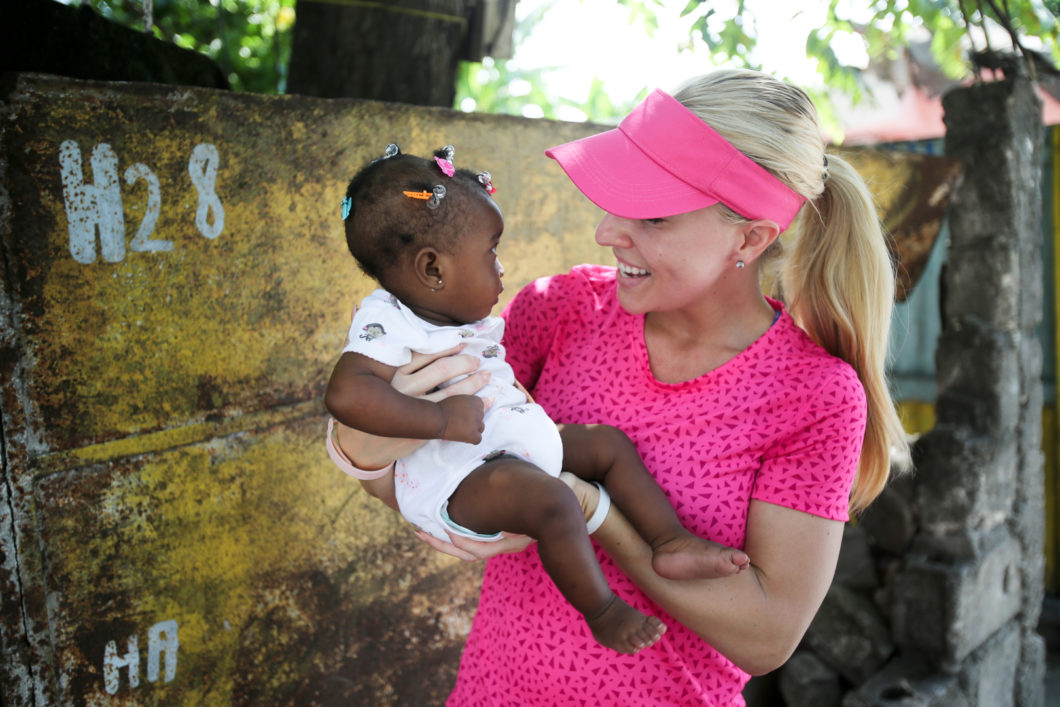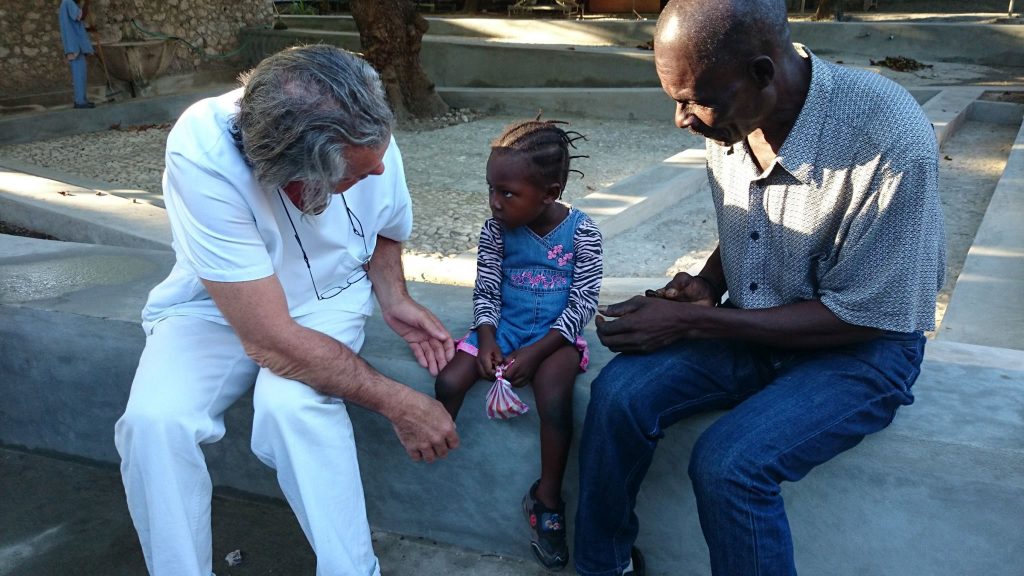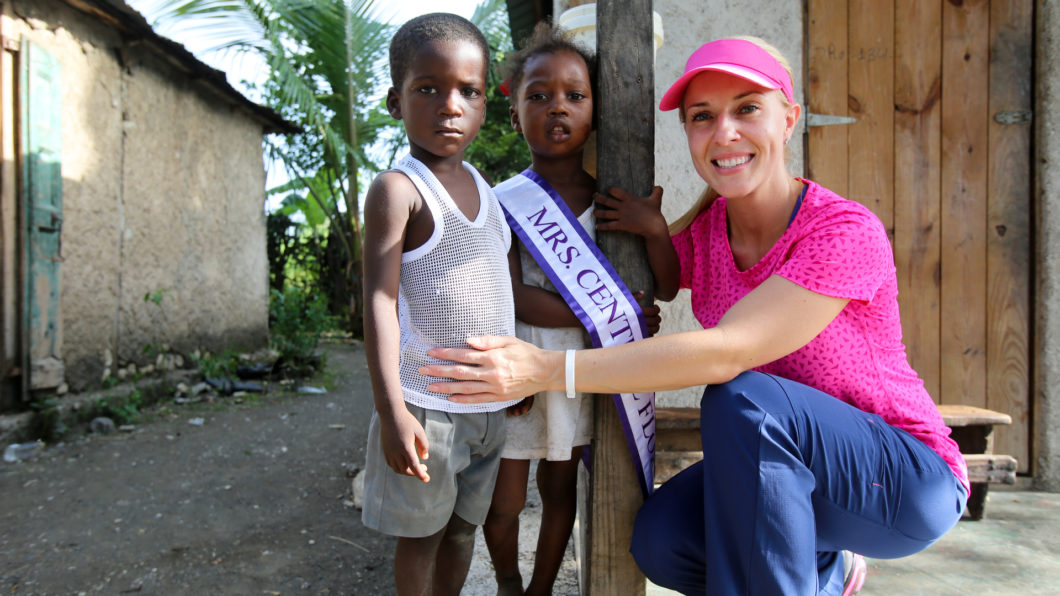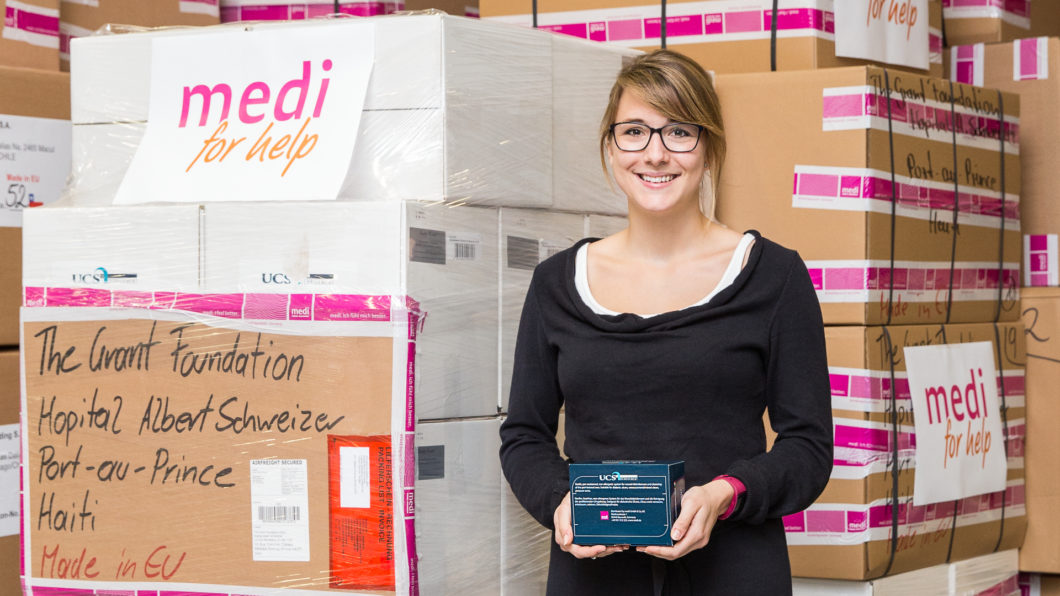
A smile for Haiti
medi for help – being there when it matters.
medi has been engaged in helping disaster-stricken Haiti for over six years. The charitable project ‘medi for help’ makes sure that the support goes directly to those who need it most – to the people. In January 2010, one of the strongest earthquakes in the history of the country cost more than 200,000 Haitians their lives, while over 300,000 were injured, many of them severely. A short time later, medi for help arrived on the scene and has been providing help for self-help ever since.
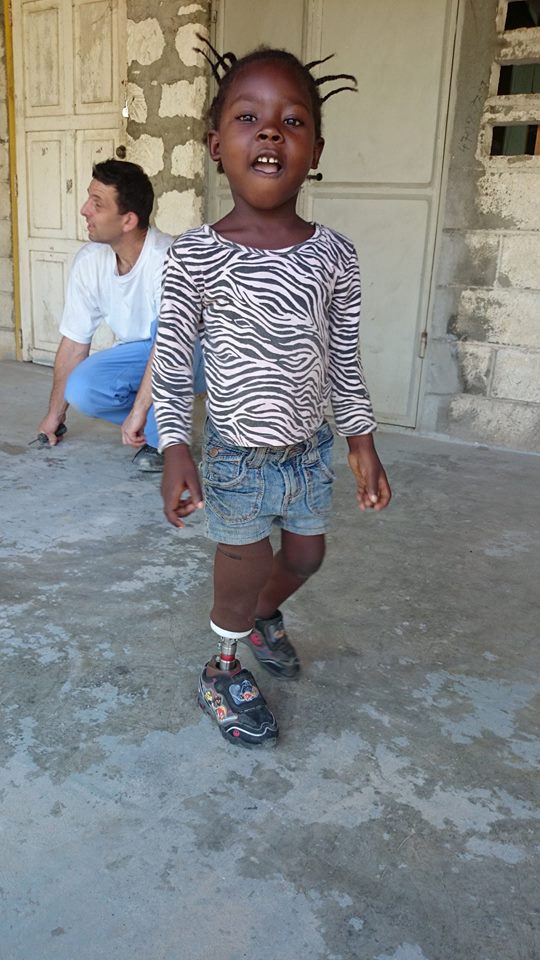
Success stories
What started as a prosthetic rehabilitation centre in Deschapelles, where Haitians with leg amputations were treated free of charge, has now grown into a successful disaster aid project. The medi for help workshop managers and volunteers in Deschapelles train local Haitian CPOs, thus making a valuable contribution to active self-help. The volunteers there experience the fate of the people at first hand every day, for example, little Fleurimene’s story. The little girl, not quite four years old, was brought along for a consultation in November 2014. Her right leg had never developed completely and was unstable. She had never walked a single step. The specialists in Deschapelles amputated her leg and fitted her with a prosthesis. Today Fleurimene loves to laugh and can walk around unaided. She is just one of the over 2,800 Haitians who have been able to start a new life thanks to the care given by medi for help.
Step by step into a better future
Our help reaches the people. In co-operation with our local partners, an off-road vehicle has now been bought as a ‘mobile clinic’ to provide care in outlying regions twice a week. The second workshop in central Port-au-Prince is a great relief for the population of the capital city, who had previously been forced to endure a journey to Deschapelles that lasted about three hours. medi for help recently also started providing compression care in Haiti to help care for chronic wounds and lymph disorders. Because 88 percent of the surface area of the country is a risk zone for lymphatic filariasis, a parasitic form of lymphoedema that is transmitted by mosquitoes. medi for help has shown that decongestive therapeutic procedures, including manual lymphatic drainage and compression treatment, can be established even in disaster areas like Haiti, where wthey achieve very successful results. medi for help recruits volunteers specialising in orthopaedic technology to work in Haiti for a period of two to four weeks free of charge. Active self-help also includes training Haitians in Deschapelles as CPOs and lymph specialists. This creates new jobs and secures sustainable medical aftercare. medi for help will continue to support future Haitian generations in the long term to improve their medical situation and give them new prospects for their future lives.
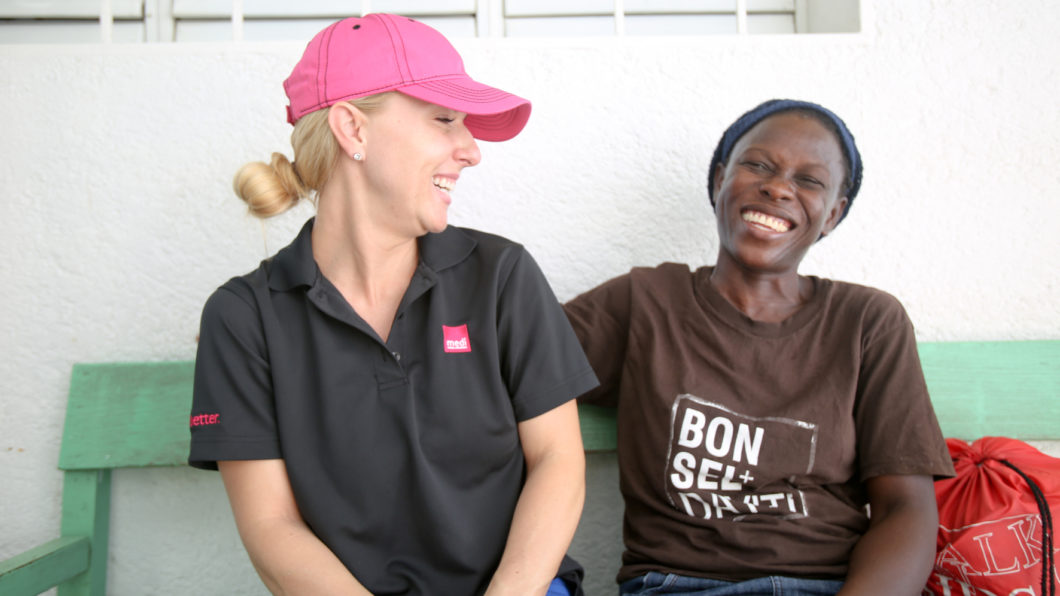
Amy Santiano und Muracille
Amy Santiago and Muracille share the same fate – but their lives couldn’t be more different. Both women are affected by a lymphatic disorder. What they also have in common? The courage and the strength to accept their condition and to help others who have it too.
